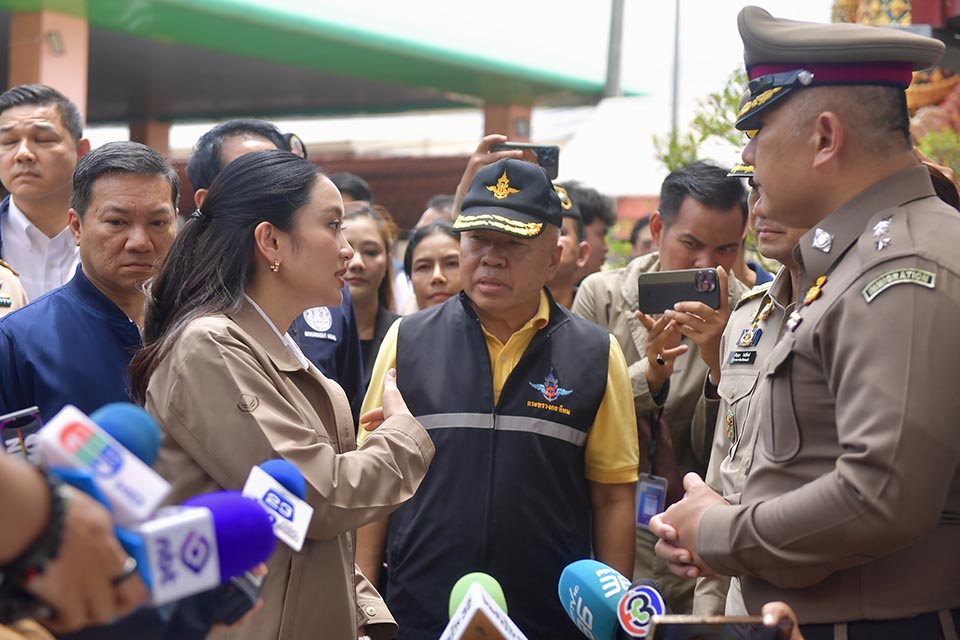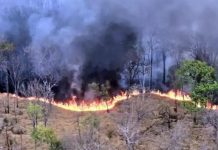
SA KAEO, Thailand – Prime Minister Paetongtarn Shinawatra, accompanied by Deputy Defense Minister Gen. Natthaphon Nakphanit, visited Aranyaprathet district in Sa Kaeo province today (June 26, 2025) to assess the impact of tightened Thai-Cambodian border controls and address transnational crime.
The Prime Minister chaired a meeting at Aranyaprathet School, joined by senior officials including Interior Ministry Permanent Secretary Ansit Saphantharat, First Army Region Commander Lt. Gen. Amrit Boonsuya, and relevant agencies. Upon arrival, she received a comprehensive briefing on border trade conditions, agricultural issues, efforts to curb call center scams, and cross-border crime prevention measures.
Sa Kaeo Governor Parinya Phothisat raised multiple concerns, including an abnormal rise in Cambodian passport applications — up to 200 per day, compared to a normal 30–40 — with intelligence suggesting most were related to employment and gambling activities. He also proposed reinstating the 1,000 baht ($27) re-entry fee for Cambodian nationals during Songkran, noting that the previous exemption cost Thailand about 74 million baht in revenue.
The governor further recommended indefinitely postponing activities marking the 75th anniversary of Thai-Cambodian relations and suspending all non-humanitarian aid to Cambodia. He also called for a review of the planned Pong Nam Ron border bridge project, citing redundancy with an existing Thai-Cambodian friendship bridge nearby.
In her remarks, Prime Minister Paetongtarn emphasized her commitment to decentralization and empowering local authorities, stating that governors and local MPs understand the problems on the ground best. She said more ministers would visit border provinces following the finalization of the new Cabinet lineup.
The Prime Minister reaffirmed the government’s priority on peaceful conflict resolution, thanking the military for their restraint and discipline. She stressed that avoiding bloodshed is always the first consideration when addressing border tensions and praised the efforts of soldiers deployed in the area.
Trade, especially agricultural goods stuck at border checkpoints, was another key focus. She tasked the Commerce Ministry to investigate and expedite solutions, including direct government or private sector purchases to relieve surplus. She noted that low cassava prices should be stabilized domestically before considering foreign import quotas.
PM Paetongtarn also instructed the Ministry of Interior to streamline complaint processes so that affected citizens can receive faster, more transparent assistance. She suggested a pilot program across seven provinces to improve compensation systems and ease bureaucratic delays, saying, “We cannot let people wait half a year for help — the system must be updated to match modern realities.”
On issues of national security, she urged the Digital Economy and Society Ministry, the Interior Ministry, and the NBTC to scrutinize private companies potentially aiding transnational crimes and scam networks. She called for unity among all state agencies under the “Team Thailand” model to ensure consistent support for border residents and businesses.
At the end of the session, the Prime Minister visited local students, engaging with them in English. One student introduced themselves fluently in English, prompting the Prime Minister to praise them, saying, “Excellent! Today’s youth are confident and expressive. Keep studying hard — and may everything you read stick in your memory!”











